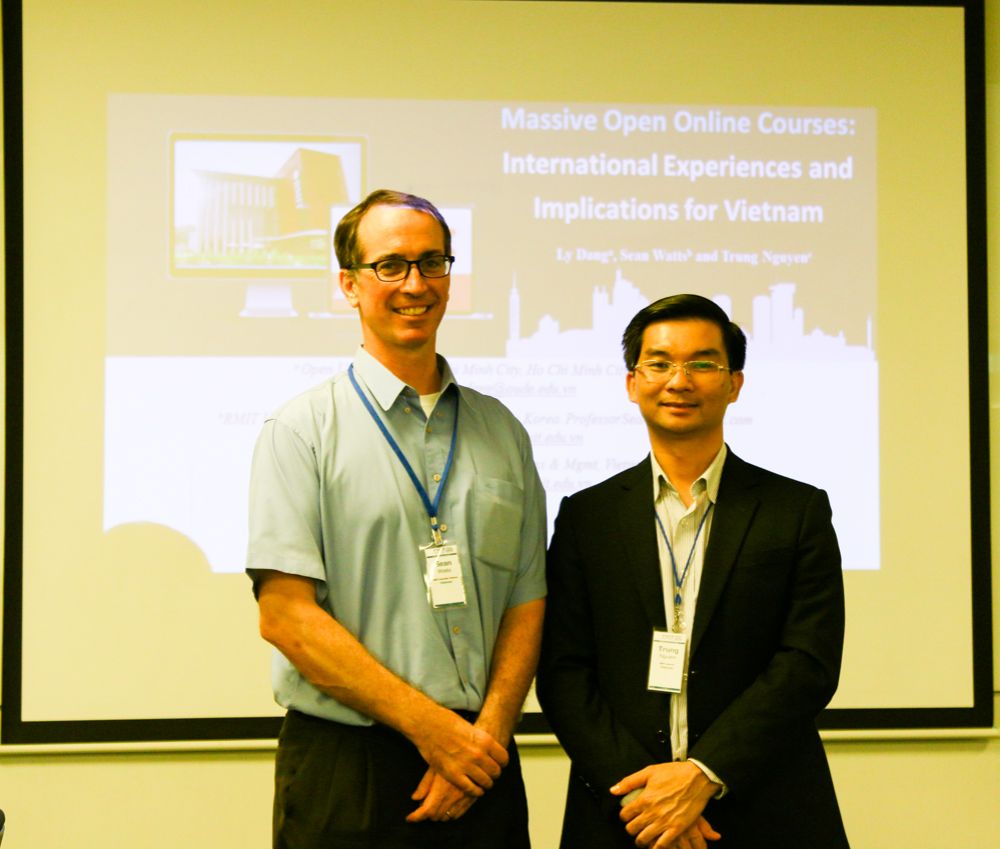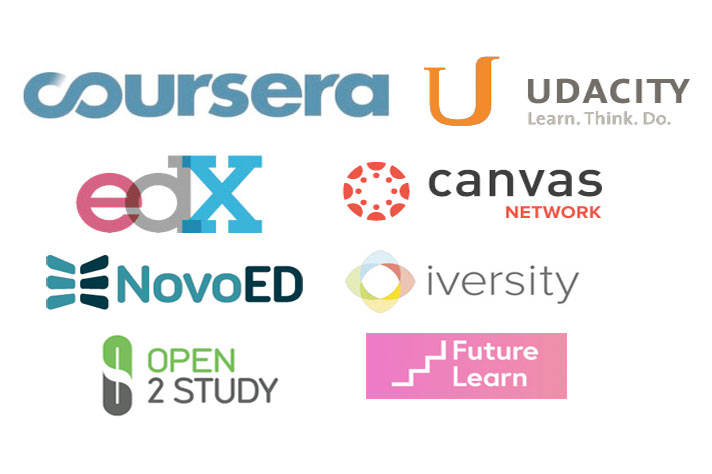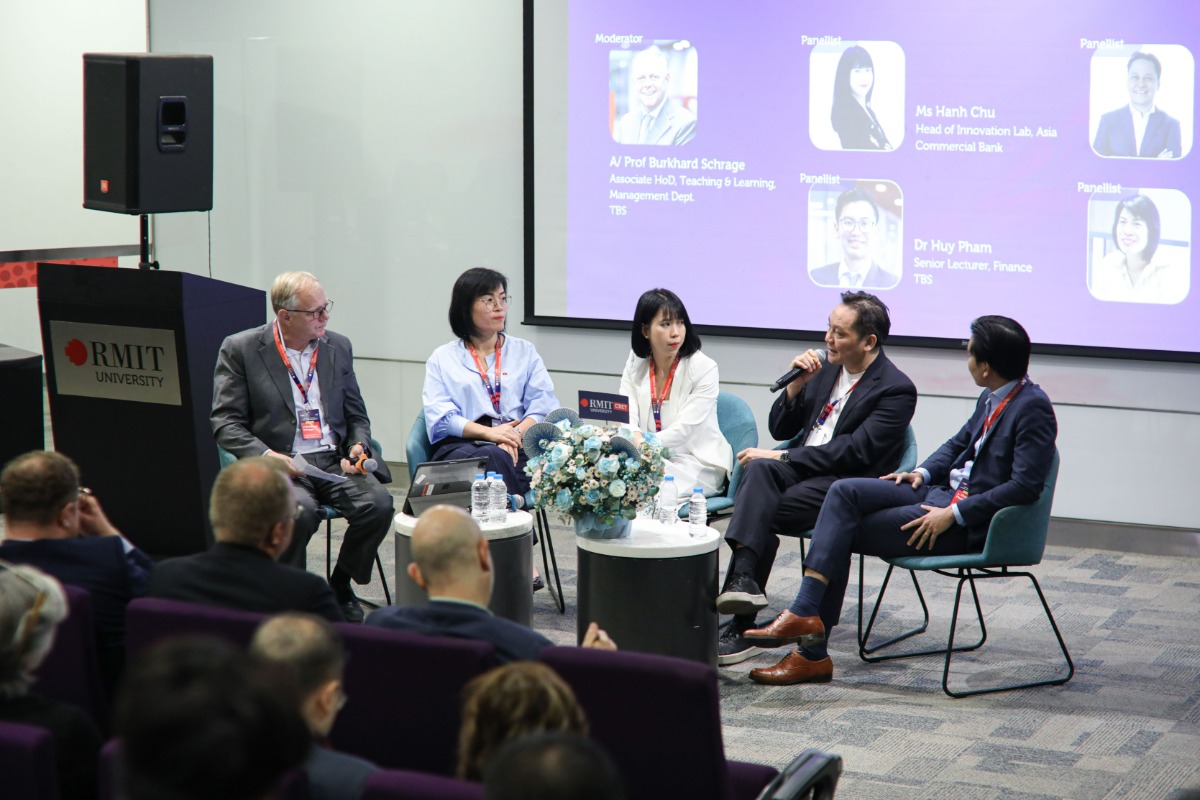In searching for alternatives in education, Dr Watts said MOOCs might be able to fulfil the quest for ‘new, fundamental and comprehensive’ education reform in Vietnam.
“The existing online learning environment (Moodle – a free and open-source software learning management system) [in Vietnam] is still in trial phase and facing a number of challenges in replicating to other education and training programs, particularly for distance education programs,” Dr Watts said.
Dr Watts quoted Giap Van Duong, Vietnam’s first creator of MOOCs: “According to this interview [Mr Giap’s interview with VnExpress], the first advantage that Vietnam has is a young population distribution, specifically, an estimated 34.5 million of 91 million people are aged 15-to-35.”
“This is the age of people preparing for new entry into the labour market, therefore, the demand for quality, cheap, and flexible education is very high in preparation for this important stage.”
He argued that MOOCs are an opportunity for higher education in Vietnam because of the weaknesses and rigidity of the traditional education system.
Currently, MOOCs throughout the world are using common languages such as English or French, and there are no public MOOCs with content in Vietnamese.
“This fact helps MOOCs in Vietnam have the opportunity to develop to serve the local market, before expanding further,” Dr Watts said.
Dr Watts and his team suggested that rather than MOOCs making universities obsolete, universities should make MOOCs possible with a proactive strategic approach.
“Each institution will have to assess whether and how it wants to use MOOCs, rather than, or in addition to, other forms of e-learning,” Dr Watts said.
“This requires the development of strategic approaches, developed in line with institutions’ profile and mission, and in the wider context of the changing nature of learning and teaching and the growing role of e-learning.”
And from a practitioner’s perspective, Dr Nguyen Quang Trung added that although offering MOOCs in Vietnam is very challenging, time consuming and resource-intensive, the recent trend of redefining MOOC as MOC – Massive Online Courses can provide a more sustainable model.
“MOOCs might be no longer open and learners need to pay a little money to get a certificate,” Dr Trung said.






